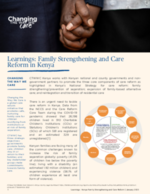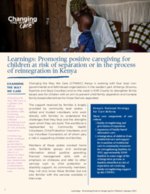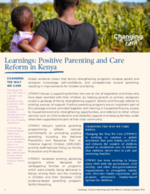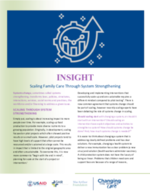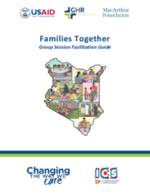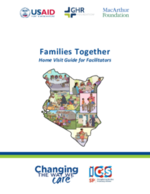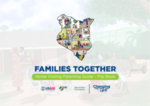Learnings: Family Strengthening and Care Reform in Kenya
This brief summarizes the original design of Changing the Way We Care’s family strengthening approach, the lessons learned during implementation, and the adaptations that CTWWC is making to maximize the impact of its family strengthening work.

